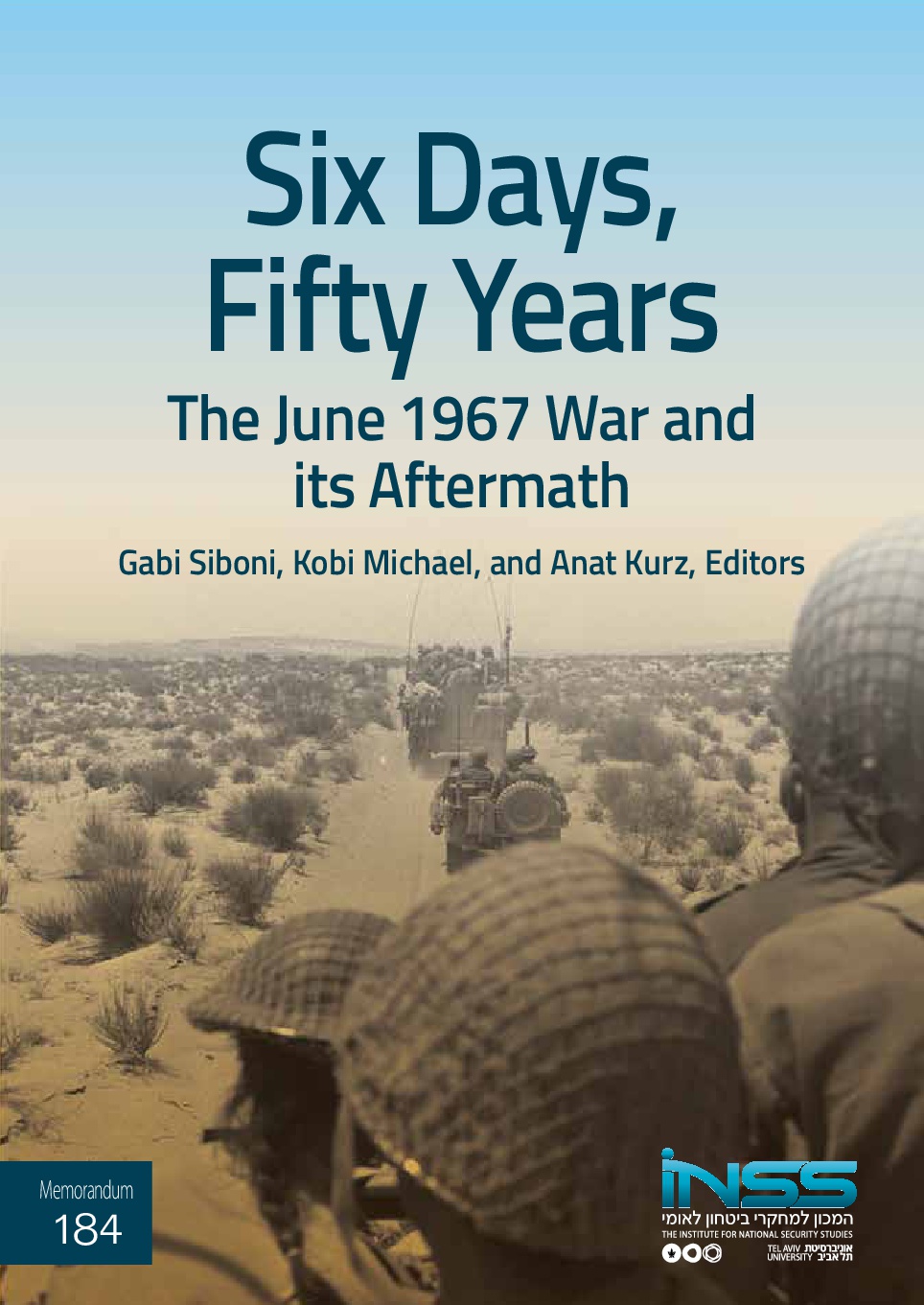Publications
Tel Aviv: The Institute for National Security Studies, 2018

The Six Day War dramatically transformed the State of Israel’s strategic position in the Middle East. From a small country just able to protect itself and maintain its existence despite the dangers from all its neighbors—who enjoyed Soviet support and petroleum wealth—Israel became a regional superpower with undeniable military superiority. The war made it clear to the Arab world, although not always explicitly, that it was not capable of destroying the State of Israel. Even the difficulties Israel encountered in the Yom Kippur War did not fundamentally change this fact. The Six Day War put Israel on the map; it provided Israel with strategic depth, breadth for maneuvering, and a status that it previously did not have within world opinion, nor among international policy makers and the world’s Jewish communities. This nonetheless came with a price—the severing of diplomatic relations with the Soviet bloc, followed by the African countries—but the benefits far outweighed the costs according to any measure.


